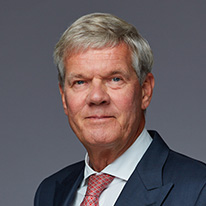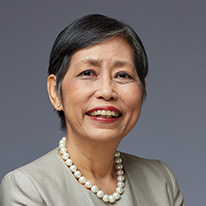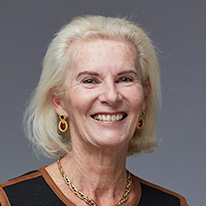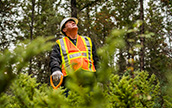Nomination and Succession Committee

Focus areas for 2021
- Discussions about Non-executive Director and Executive Committee succession
- Discussions on talent engagements with key staff and succession candidates
- In-depth examinations of the Shell People Strategy and culture, with an increased focus on diversity, equity and inclusion and end-to-end talent management
Priorities for 2022
- Non-executive Director and Executive Committee succession
- Continued talent engagements with key staff and succession candidates
- Maintain proactive oversight over Shell’s ambition to become one of the most diverse and inclusive organisations in the world
Committee membership and attendance for 2021

Sir Andrew Mackenzie
Chair of the Committee
100% attendance
5 out of 5 possible meetings attended
Member since: Oct 1, 2020

Dick Boer
Committee member
100% attendance
3 out of 3 possible meetings attended
Member since: May 19, 2021

Euleen Goh
Committee member
100% attendance
5 out of 5 possible meetings attended
Member since: July 1, 2019

Ann Godbehere
Committee member
100% attendance
1 out of 1 possible meetings attended
Member since: October 27, 2021
Committee member |
Member since |
Maximum possible |
Number of meetings attended |
% of meetings attended |
||
|---|---|---|---|---|---|---|
Sir Andrew Mackenzie |
Oct 1, 2020 |
5 |
5 |
100% |
||
Dick Boer |
May 19, 2021 |
3 |
3 |
100% |
||
Ann Godbehere |
October 27, 2021 |
1 |
1 |
100% |
||
Euleen Goh |
July 1, 2019 |
5 |
5 |
100% |
||
Chad Holliday [A] |
May 19, 2015 |
2 |
2 |
100% |
||
Sir Nigel Sheinwald [A] |
May 20, 2020 |
2 |
2 |
100% |
||
|
||||||
Purpose
The Nomination and Succession Committee (the “Committee”) leads the process for appointments to the Board and Senior Management [A] positions, ensures plans are in place for orderly, well-planned succession, and oversees the development of a diverse succession pipeline of candidates. It also reviews the Company’s policy and strategy on diversity, equity and inclusion (DE&I), and monitors the effectiveness of these initiatives. It makes recommendations to the Board on corporate governance guidelines, as referred to in the Chair’s statement.
[A] “Senior Management” refers to the Executive Committee and the Company Secretary.
Talent Management and Succession
The Committee is fully engaged with the end-to-end talent management and senior succession planning approach that is deployed within Shell. It plays a key role in senior succession and resourcing. Retaining in-depth knowledge of the individuals within the talent pipeline is a Committee priority. The Committee makes time to personally meet and engage with numerous individuals within the pipeline. The Committee’s oversight and input extend from recruitment to leadership identification and from leadership development to leadership appointment, all of which are underpinned by clearly articulated talent priorities and a commitment to advancing diversity, equity and inclusion across Shell.
The Committee manages Board and Senior Management succession under a structured, proactive methodology. The processes have clear and agreed selection principles for short-, medium- and long-term succession and are aligned with Shell’s strategic priorities.
For Non-executive Director succession, the Committee continues to follow its Principles for the Strategic Composition of the Board, adding factors as they evolve. These principles function much like a policy and include both quantitative and qualitative principles, considering:
- the overall aspired Board composition and diversity of gender, race and ethnicity, nationality, background, experience and desired skill sets that align with the Company’s strategy and purpose; and
- the values, attitudes, and behaviours expected of Directors.
For Senior Management succession, the selection principles include process-specific elements, such as a clear and proactive approach to identifying and developing succession candidates. The principles also outline the long-term structured nature of the succession planning process. There is also great focus on ensuring that the principles reflect the leadership qualities required for future business success and that they advance the progress of diversity in all its forms.
Senior Management principles feature in the Committee’s review of the succession plans which occurs in every Committee meeting. Using the principles, the Committee implements any changes through a well-defined and diligent process with overall Board engagement. The Committee agrees candidate profiles and meets prospective candidates well ahead of any selection decision being necessary. It also engages the Board early in the process to ensure all Directors have an opportunity to meet and assess prospective candidates. Consequently, some of the leaders whom the Committee and Board have engaged with extensively in the past are now members of the Board or the Executive Committee.
In 2021, the Committee undertook its annual in-depth look at the succession plans for Senior Management across Shell and reviewed the talent pipeline in line with the business outlook. The engagement focused on the organisational health of our workforce following Project Reshape; the introduction of a single integrated and global Diversity, Equity & Inclusion plan aligned to our strategy and purpose, the depth and breadth of the senior executive leadership pipeline including good progress in enhancing diversity, the skills, behaviours and development support required for future success, and an evolving outlook on senior executive roles. Following the Committee’s review, the findings were reported to the Board.
Diversity of Leadership
The Committee recognises that continuing to improve all types of diversity at each level of the Shell Group is crucial. Shell aims to be an inclusive workplace where everyone feels valued and respected and has a strong sense of belonging. The Committee’s review of diversity objectives and strategies for the Shell Group as a whole also monitors the impact of diversity and inclusion initiatives.
In February 2021, Shell published its aspirations for diversity, equity and inclusion as part of its strategic update. The focus will continue to be on gender and nationality diversity, and is broadening and deepening to the areas of race and ethnicity, enablement and LGBT+. When looking at our progress against our ambitions, female representation has steadily improved in recent years. Among experienced recruitment in 2021, Shell companies recruited 34% females, and among graduates 47%. Female representation in the top 1,250 roles (“Senior Leadership” positions) has strengthened by 1.7 percentage points during 2021 to 29.5%, and we continue to progress towards our aim of achieving 35% female senior leadership representation by 2025. Nationality diversity, such as Asian and American talent, continues to be managed in accordance with the business outlook and we have a strong focus on progressing race and ethnic minority representation, beginning in the UK and the USA and followed by the Netherlands. The representation of people of colour among Shell’s senior leaders in the USA has been actively tracked for many years. It stood at 26.1% at the end of 2021, compared with 17.3% in 2016. In the UK, race and ethnicity representation among senior leaders was 16.5% [A].
[A] As ethnicity declaration is voluntary, our ethnicity declaration rate is not 100% and all calculations are based on a declaration rate of 81%. The 19% of our workforce who have not provided data or chosen not to declare their ethnicity were not included in our calculations.
Senior Leadership is a Shell-specific measure and different from that which we are required to report under the Code, being female representation in Senior Management and their direct reports, where the percentage is 28.4%.
Although the Committee monitors Shell’s organisational diversity, equity and inclusion strategies and initiatives, it also holds itself accountable for the Board’s own diversity and inclusion. By the end of 2020, the Board’s diverse composition met the Hampton Alexander and Parker Reviews’ objectives by reflecting 38.46% female representation with one person meeting BAME criteria. Gender representation was down slightly from May 2020 (when the Board’s composition included 42% female representation) as a result of the departure of three Non-executive Directors (one female, two males) and the appointment later in the year of four new Non-executive Directors (one female, three males). However, following the 2021 AGM, for the first time in Shell’s history, the Board reached gender parity with 50% female representation.
More information on diversity, equity and inclusion in Shell is provided in the "Our people" section.
The People Strategy and culture and identity
During the year, the Committee initiated an in-depth examination into our approach on diversity, equity and inclusion. This will follow the format of the examination of the Shell People Strategy that the Committee undertook in 2020, which placed particular emphasis on our aspired culture and identity. Powering Lives is a foundational element of our Powering Progress strategy. The Committee will be conducting further engagements in 2022 to maintain proactive oversight over Shells ambition to become one of the most diverse and inclusive organisations in the world, where everyone feels valued, respected, with a focus on four areas of gender, race and ethnicity, LGBT+ and disability.
Committee activity
In addition to its considerations regarding succession, the Committee made recommendations on corporate governance guidelines, monitored compliance with corporate governance requirements and made recommendations on corporate governance-related disclosures. The Committee continues to monitor and review this area, considering whether and how current Company governance matters should be strengthened. Further insight on some of the Committee’s areas of consideration in 2021 is provided below.
Succession [A] |
Topic of discussion/example of Board activity |
||
|---|---|---|---|
Recommendation |
|
||
Review and oversight |
|
||
Oversight |
|
||
Engagement |
|
||
|
|
||
Governance |
Topic of discussion/example of Board activity |
||
Governing the Board and its committees |
|
||
Regulation, legislation and other governance-related guidance |
|
||
Shell plc matters |
|
||
|
|
||
Board membership and other appointments |
Topic of discussion/example of Board activity |
||
Directors’ tenure, external commitments, conflicts of interests and succession planning |
|
||
|
|
||
Talent overview and senior succession review |
Topic of discussion/example of Board activity |
||
Shell Senior Succession and Resourcing Review covering Executive Director and Executive Committee (EC) succession, EC direct reports, the senior executive group and the overall talent pipeline |
|
||
|
|||
Director induction and training
After being appointed to the Board, Directors receive a comprehensive induction tailored to their individual needs. This normally includes site visits and meetings with Senior Management to enable them to build up a detailed understanding of Shell’s business and strategy, and the key risks and issues that Shell faces. Existing Directors are also able to join these visits to keep abreast of business developments and progress. With the abnormal COVID-19 circumstances in 2020 and 2021, the induction programme was quickly adapted to a completely virtual induction.
Onboarding is phased and prioritised based on forthcoming Board agenda items to help ensure the new Non-executive Directors hit the ground running. In 2020 and 2021, digital onboarding books were provided for each new Non-executive Director. These onboarding books complemented the existing digital Directors’ Handbook and featured:
- overviews of scheduled briefing meetings customised to the Non-executive Directors’ needs and linked to upcoming Board agenda items;
- hyperlinks to key Shell publications (external and internal);
- lists of common Shell acronyms;
- key current materials on:
- Shell’s safety and core values;
- Board governance;
- Group strategy and portfolio;
- key businesses and functions; and
- climate change and energy transition;
- biographies of key executives.
- Other elements of the onboarding programme for Non-executive Directors included:
- arranging briefing meetings with key executives (both business and functional) customised to Non-executive Directors’ needs and phased based on forthcoming Board agenda items;
- where feasible, pairing up new Non-executive Directors in onboarding briefings to optimise learning while also providing opportunities for collegial relationship-building and increasing efficiencies for the executives; and
- where possible, arranging virtual site visits (either specifically for onboarding or by inviting the new Directors to committees’ virtual site visits).
Supported by the benefits of the global vaccination programme, we are now seeing COVID-19-related restrictions starting to ease in many countries. As a result, we envisage Directors being able to increase their face-to-face engagement with our teams at our sites in 2022 and to enhance ongoing Director training.
Chair succession
Message from Euleen Goh
In early 2018, the process of selecting the next Chair of the Board of Shell plc (at the time known as Royal Dutch Shell plc) began in response to the proposed limit on Chair tenure, outlined in the then draft version of the Code. The Nomination and Succession Committee (NOMCo) created a subcommittee, drew up a potential succession timeline, and initiated an internal and external search process. Hans Wijers, the Senior Independent Director at the time, led the subcommittee and the search process. Chad Holliday, the current Chair, was not a member of the subcommittee.
My predecessor Gerard Kleisterlee took over from Hans in May 2018 and refined the selection criteria and succession timeline. The subcommittee agreed what qualities the successful candidate should have, and determined the functional focus elements of the new Chair’s role. Accordingly, the subcommittee considered and interviewed multiple candidates.
After Gerard retired from the Board at the 2020 AGM, I assumed leadership of the subcommittee and we further reviewed the required qualities and functional focus elements of the role in the context of the current environment. The subcommittee also examined the main trends and factors affecting the long-term success and future viability of Shell, and the organisation’s strategic priorities, consulting on these with the wider Board. One-on-one discussions were held with each Board member. The review and the discussions helped us to refine our search process with a clear and updated understanding of the qualities, skills and attributes that the future Chair should possess.
We engaged with some of our larger investors, as appropriate, seeking input on the skills, attributes and sector knowledge that they considered important for the Chair candidate profile. These discussions were very valuable. They helped inform our search and selection of the most appropriate individual for the role.
After this thorough and robust search process, the Board agreed unanimously at its March 2021 meeting that Sir Andrew Mackenzie should be appointed Chair of the Board with effect from the conclusion of Shell’s 2021 Annual General Meeting, which was held on May 18, 2021.
When reviewing candidates, our preferred qualities and functional focus elements included a strong requirement for a candidate who has experience in leading large, complex, international organisations. The candidate would have had significant experience in capital discipline. He/she should have an ability to balance the transformational changes that Shell needs to make against the timing of these changes as it navigates the energy transition. The successful candidate should have demonstrated sustainable actions with respect to the climate change agenda. An understanding of the energy market was essential, without it being necessary for the candidate to have spent their entire career working in the oil and gas sector.
In Andrew we believe that we have found the required qualities and more. Andrew is a lifelong learner with a collaborative, agile mindset and he is a champion of good governance. His strategic vision has helped operations and companies under his leadership to transform. His leadership performance in the areas of environmental, social and governance (ESG) and climate action are outstanding. He was recently knighted by the Queen of the United Kingdom for his services to business, science and technology. Andrew firmly believes that business can be a force for good, for shareholders and society alike.
Since joining the Board in October 2020, Andrew has dedicated significant time to familiarising himself with the business, the people, and the Powering Progress strategy which he and the Board fully support and are committed to delivering together with management.
His broad experience, strategic vision, scientific curiosity and commercial acumen made him the ideal candidate to lead the Board of Shell plc.









